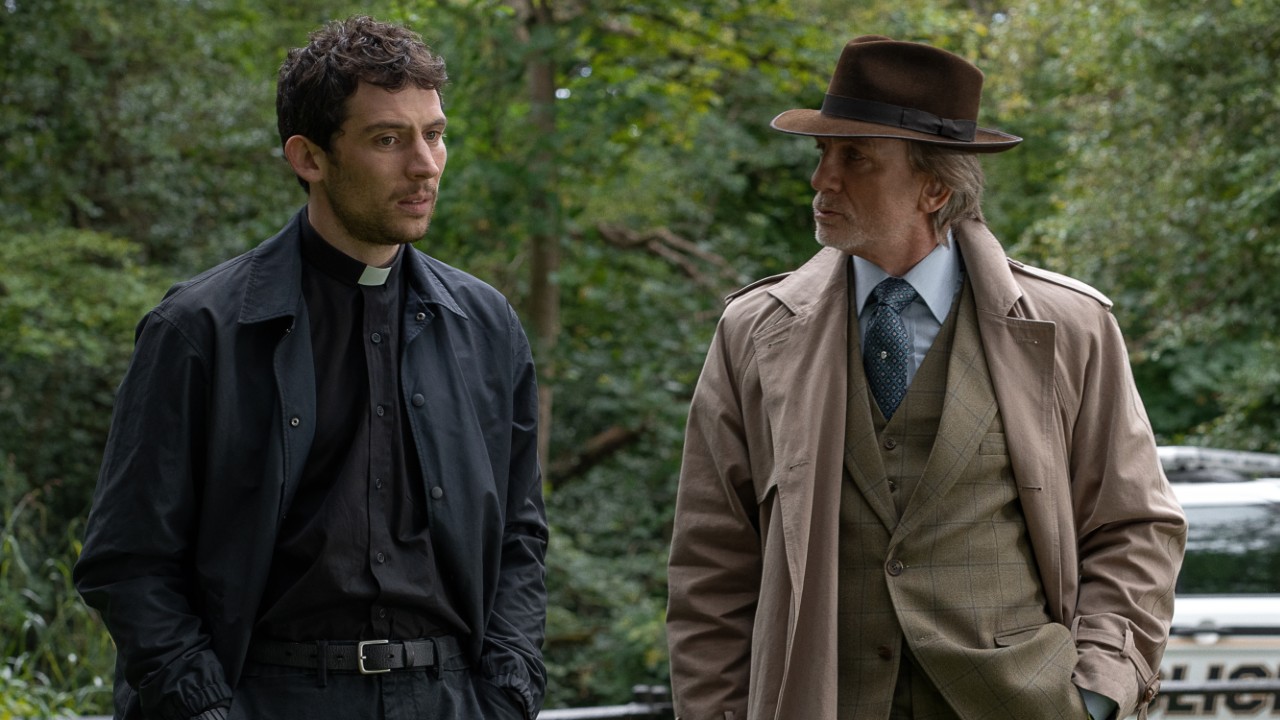Over the years, Nicolas Cage has become something other than an actor; he's become an icon of pop culture, valued for his wild eyes and unrepentant eccentricities, real or imagined. This larger-than-life persona has begun to overshadow Cage's actual abilities as a performer. And Cage finally seems to be aware of this, willfully stripping down his star power and toning down the antics that have become his crutch, for the gritty indie Joe.
Based on the novel by Larry Brown, Joe is a drama set in an impoverished southern town, overrun with violent, drunken hillbillies. The first of these we meet is Wade (Gary Poulter), a beleaguered alcoholic with a grizzled beard and endlessly filthy wardrobe who stares off into nothingness as his teen son Gary (Tye Sheridan) mercilessly berates him for being a deadbeat who can't provide for his family of four, and only brings them pain. In response, Wade turns and without a word punches his son in the face and out of frame. It's a bleak opening that deftly establishes the grim environment in which young Gary is becoming a man.
Cage eventually appears as Gary's boss Joe, an ex-con who runs a vaguely illegal lumber operation. In desperate need of a father figure, Gary clings to Joe. In response, Joe tries to steady himself to be the kind of man who deserves this kind of admiration, and who can shoulder this kind of responsibility. The pair's relationship is the film's central focus, but it doesn't provide much in the way of a plot. Instead, the script by Gary Hawkins meanders, much like the soused Wade, veering from one location and its volatile inhabitants to the next. Frustratingly the screenplay takes another cue from its flawed male leads, regarding its female characters either as objects of lust or helpless (sometimes literally speechless) victims in need of rescue.
I should make clear I did not like Joe. However, a movie being “good” and a movie being “to my taste” aren't always the same thing. Joe is an intriguing movie with a daring tale of male friendship and a definition of what manhood means. It's just not one that spoke to me personally. I'm fairly certain it's because of the opening, which was so off-putting that it alienated me from Gary and the men he admired. Simply put, Joe is not my kind of movie. It happens.
However, my distaste for its tone aside, I can't deny helmer David Gordon Green has directed his cast to create some spectacular performances. Poulter is a newcomer to film, but he is astonishingly raw and terrifying as a man so worn down by his addiction that he has loyalty to no one. For Sheridan, Joe only marks his third film, following The Tree of Life and Mud. But the boy has a natural talent that allows him to seem like he is being captured on camera rather than performing for it. Yet it is Cage who has the heavy lifting of Joe, and it is Cage who deserves the most praise.
In Joe, Cage is almost unrecognizable, covered in a thick beard that hides his famous face, draped in thick knits that make him seem more everyman than he has in years, and urged away from the theatrical and showy performance style that has become his signature. Here he gives us a simpler, but layered performance that is as compelling as it is disturbing. Joe is a man who holds within him a great capacity for rage and violence. He knows this about himself and is not proud of it. So, he constructs a world of coping mechanisms--from sex with hookers to booze to cigarettes--to curb his dangerous temper. But sometimes even these fail him.
The burn inside of Joe is ever smoldering, and he is endlessly fighting to keep it from igniting. Cage communicates this struggle with a choked physicality and occasional outbursts that explode with a mesmerizing energy and menace. Here, in this little indie that is opening in limited release, Cage gives one of the best performances of his career.
Your Daily Blend of Entertainment News
In the end, Joe is movie that doesn't entreat you to like it. Through moody and crisp cinematography and a devotedly dark script, this drama showcases an ugly world of violence, rage, and many, many broken dreams. But even in this smothering atmosphere, Green and his cast find moments of light, love, and hope. But don't expect Joe to offer you a Hollywood happy ending. Instead, anticipate a drama that's a disturbing character study of rage-filled men which will seep into your skin and linger for days.
Staff writer at CinemaBlend.


